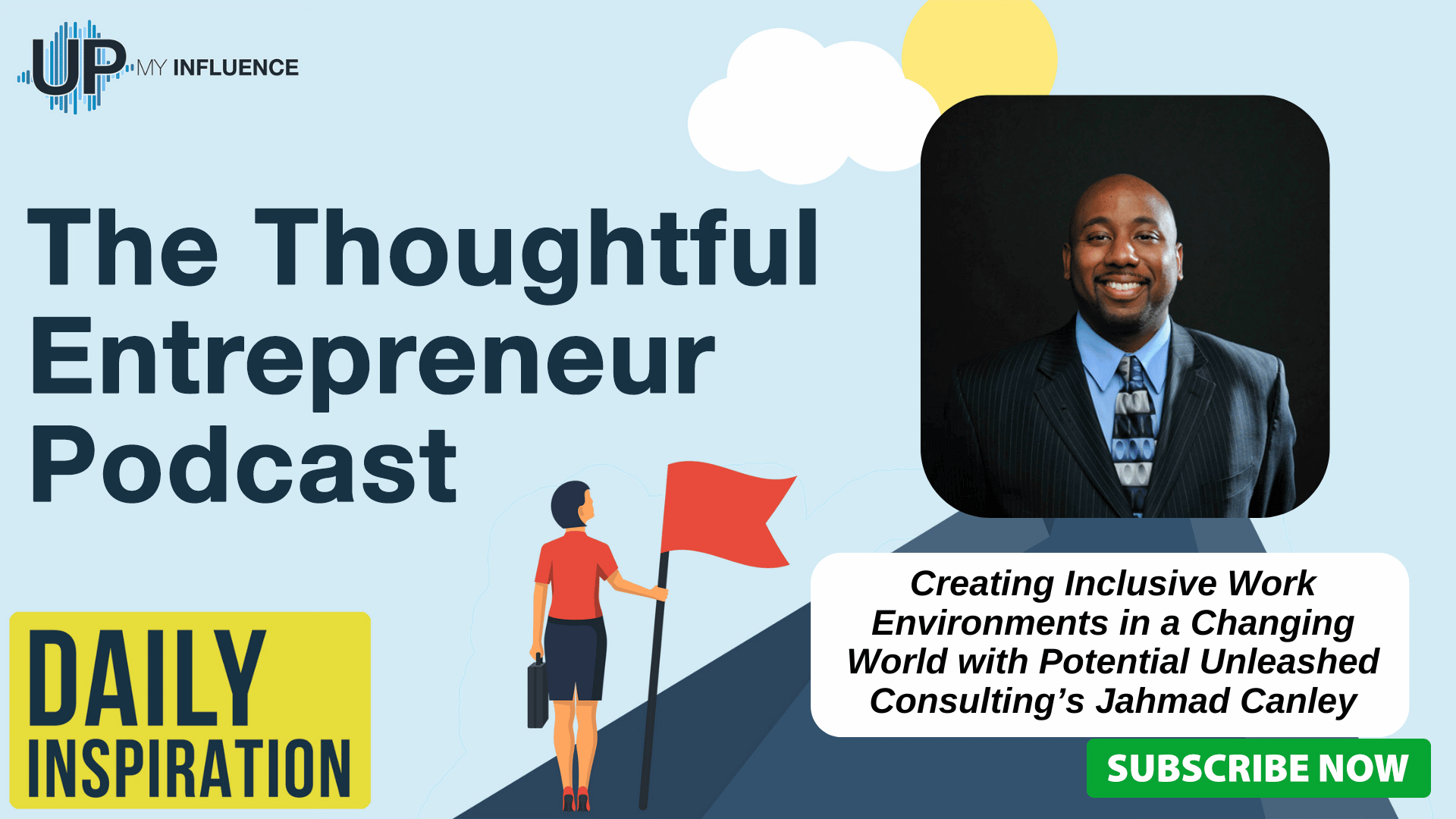THE THOUGHTFUL ENTREPRENEUR PODCAST
 Navigating Leadership and Culture Transformation in the Post-Pandemic Era
Navigating Leadership and Culture Transformation in the Post-Pandemic Era
In a recent episode of The Thoughtful Entrepreneur Show, host Josh Elledge engaged with Jahmad Canley, CEO of Potential Unleashed Consulting, to explore the shifting dynamics of leadership and organizational culture in the post-pandemic era. Potential Unleashed collaborates with a diverse clientele, including Fortune 500 companies, nonprofits, educational institutions, and athletic teams, to drive leadership development and culture transformation. Their discussion highlighted the emerging trends, challenges, and strategies for fostering adaptive, inclusive, and high-performing work environments in today's evolving landscape.
One significant trend Jahmad pointed out is the balance between in-office and remote work, which has become a pivotal aspect of organizational culture post-pandemic. Companies are now tasked with creating environments that support both remote and in-office employees. Actionable strategies include developing flexible work policies, investing in technology for seamless communication, and scheduling regular check-ins to maintain team cohesion. Additionally, Jahmad emphasized the importance of creating adaptive cultures that can evolve with new challenges while retaining their core strengths. This involves continuous feedback loops, leadership training, and celebrating organizational successes to reinforce positive behaviors and morale.
Jahmad also discussed the impact of remote work on diversity and inclusion, noting that it can remove geographical barriers and create a more diverse workforce. However, leaders must be equitable and considerate of individual situations to foster an inclusive environment. Actionable tips include developing inclusive policies, providing diversity training, and encouraging employee resource groups. Creating a culture of belonging through proactive DEI assessments, coaching, and inclusive practices is crucial for fostering a high-performing and inclusive work environment. Jamal's insights underscore the importance of proactive assessment and support for leaders to navigate the post-pandemic landscape successfully.
About Jahmad Canley:
Jahmad Canley has an endless dedication to empowerment and education for all people. He is internationally known as a top level culture transformation consultant, peak performance coach, author and masterful story teller. Jahmad focuses on helping people and organizations accomplish their goals and fulfill their potential in their personal, professional, and organizational lives. His passion for helping others unleash their potential has provided him the privilege of working with top organizations such as Microsoft, Amazon, Western Union, LA Phil Harmonic Symphony, USA Swimming and many more.
About Potential Unleashed Consulting:
Potential Unleashed is a business coaching company specializing in providing solutions to companies, teams, and individuals of every description through improved performance and increased human effectiveness.
Apply to be a Guest on The Thoughtful Entrepreneur: https://go.upmyinfluence.com/podcast-guest
Links Mentioned in this Episode:
Want to learn more? Check out Potential Unleashed Consulting website at
https://potential-unleashed.com/
Check out Potential Unleashed Consulting on LinkedIn at
https://www.linkedin.com/company/potential-unleashed-consulting
Check out Jahmad Canley on LinkedIn at https://www.linkedin.com/in/jahmad-canley-he-him-his-b70ba9a
Don’t forget to subscribe to The Thoughtful Entrepreneur and thank you for listening. Tune in next time!
More from UpMyInfluence:
We are actively booking guests for our The Thoughtful Entrepreneur. Schedule HERE.
Are you a 6-figure consultant? I’ve got high-level intros for you. Learn more here.
What is your #1 Lead Generation BLOCKER? Take my free quiz here.
Want to learn more about all the podcasts managed by UpMyInfluence? Opt in here.

